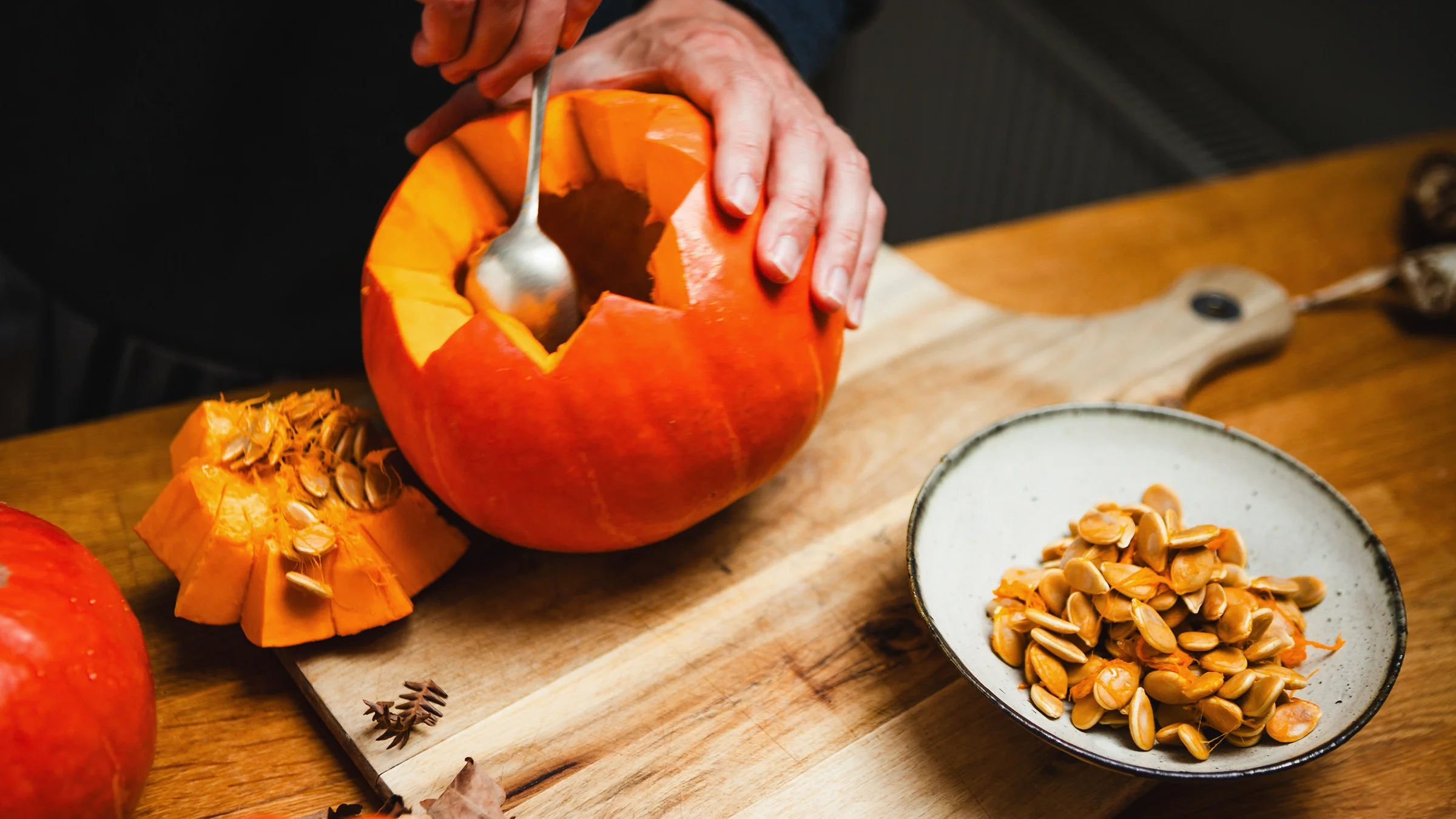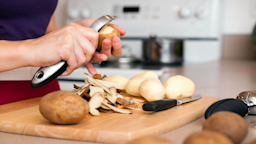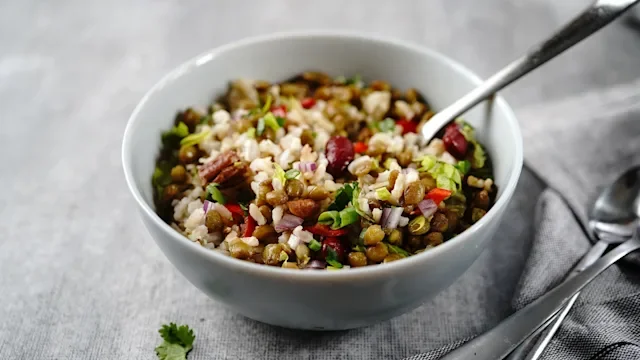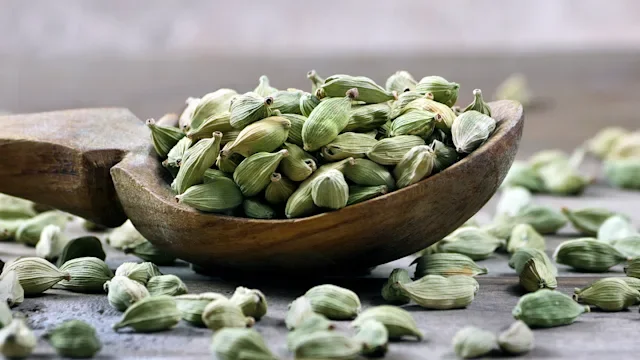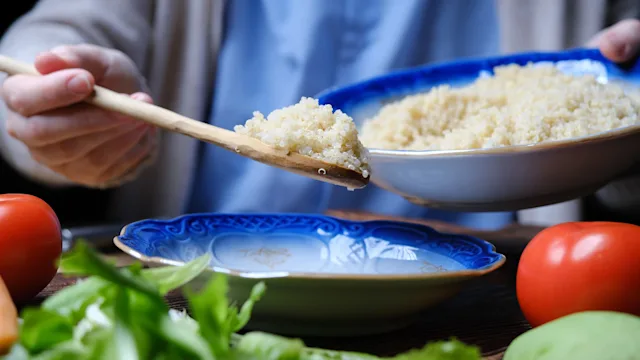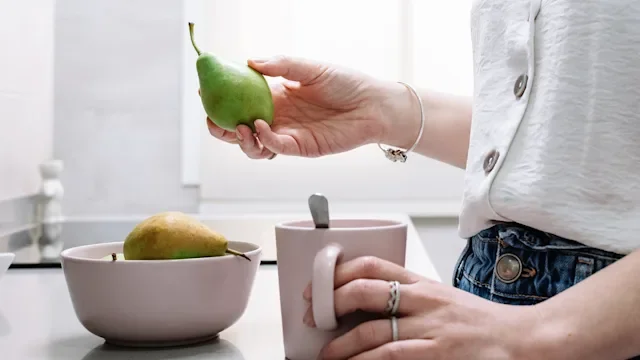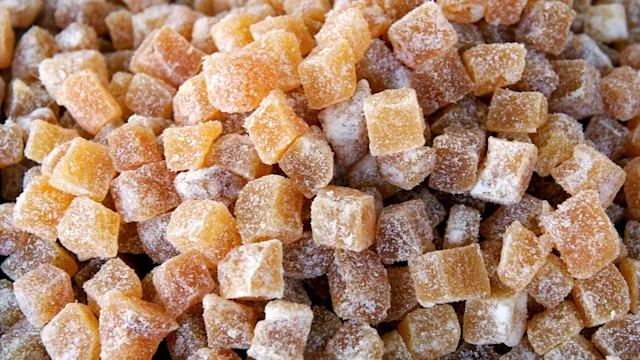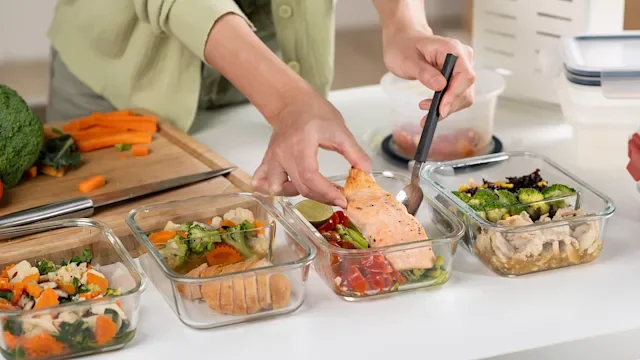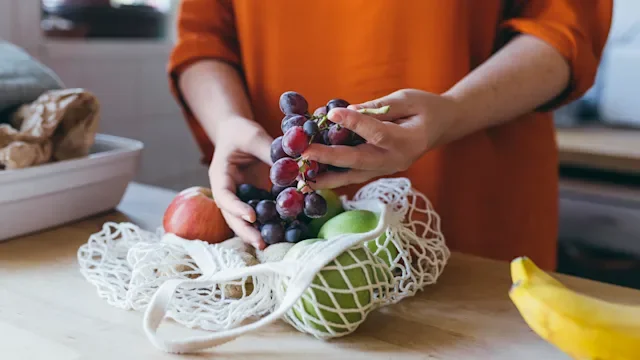Key takeaways:
Pumpkin seeds are a great source of protein, fiber, unsaturated fats, and several minerals.
Avoid roasting pumpkin seeds with a lot of butter and salt. This affects their overall health benefits.
Allergies to pumpkin seeds are rare, so these seeds are safe for most people.
When you hear the word pumpkin, you might think of fall decor or maybe pie. If so, it’s time to change how you think about pumpkins. That’s because pumpkin seeds really pack a punch when it comes to nutritional value.
Here we’ll review their health benefits and provide some tips on how to incorporate pumpkin seeds into your diet.
What are the health benefits of pumpkin seeds?
Pumpkin seeds are good for you. They’re loaded with good-for-you nutrients, minerals, vitamins, fatty acids, and antioxidants. Here’s a quick list.
Antioxidants
These compounds help fight cell damage and prevent aging and inflammation. Antioxidants also help protect against certain cancers. Antioxidants in pumpkin seeds include vitamins C and E, and certain minerals.
Fiber
Fiber helps digestion, supports a healthy gut microbiome, and lowers the risk of heart disease and colon cancer. But most people don’t get enough of it.
Luckily, pumpkin seeds are a good source of fiber. One ounce of pumpkin seeds has about the same amount of fiber as a half cup of kidney beans.
Minerals and vitamins
Minerals and vitamins support critical body functions, and adults often need more of them as they age.
Pumpkin seeds are a great way to add several vitamins and minerals to your diet. Pumpkin seeds are a good source of:
Magnesium
Zinc
Manganese
Iron
Calcium
Copper
Vitamin A
Vitamin B3 (niacin)
Vitamin B5
Vitamin K
Seeds are nutrition superstars. Here’s why you should add sunflower seeds to your diet.
Nuts are another great option. Our experts review which nuts pack the most protein.
Need an energy boost? Here are the best energy-boosting foods to try.
Protein
Your body uses protein for many things. Protein is essential for growth in kids. Protein also helps you build muscle and maintain muscle mass as you get older. You also need protein to recover from surgery and injuries.
You might be surprised to learn that pumpkin seeds are a good source of amino acids and protein. An ounce of pumpkin seeds contains 7.5 g of protein. That’s as much protein as 1 oz of peanut butter, a popular source for plant-based protein.
Phytosterols
Phytosterols are compounds found in many plants. In addition to antioxidant properties, they may also help lower LDL or “bad” cholesterol.
Read more like this
Explore these related articles, suggested for readers like you.
Unsaturated fatty acids
Everyone needs fat in their diet, but the type matters. Unsaturated fats are generally healthier than trans or saturated fats. Pumpkin seeds are full of healthy unsaturated fatty acids.
Can pumpkin seeds help you lose weight?
There’s nothing unique about pumpkin seeds that will help you shed pounds. But they can help you achieve some of the dietary strategies that experts recommend for healthy weight loss. This includes getting lots of fiber, protein, and unsaturated fatty acids in your diet. And if you like snacking between meals or late at night, pumpkin seeds are healthier than many other convenient snack options.
What is the healthiest way to eat pumpkin seeds?
A common preparation method is to soak the seeds (to remove any fiber from the pumpkin) then roast them in the oven with your oil and spice(s) of choice. You can find loads of pumpkin seed recipes online, but be wary of the ones that encourage lots of butter and/or salt.
After roasting, you can eat them alone as a snack or add them to salads, side dishes, or trail mixes.
You can also buy preroasted pumpkin seeds. These are ready to eat right out of the container. Look for options with low or no salt added.
How many pumpkin seeds should you eat a day?
A serving size of pumpkin seeds is 1 oz or a little less than ¼ cup. Like nuts, they’re nutrient and calorie dense, so you don’t want to overdo it (though it would be easy!). When in doubt, it’s best to measure them out.
Who shouldn’t eat pumpkin seeds?
You shouldn’t eat pumpkin seeds if you’re allergic to them. Luckily, pumpkin seed allergies are rare. Pumpkin seeds are generally safe to eat if you have a tree nut or peanut allergy. But keep in mind that there’s a risk for cross contamination if pumpkin seeds are processed in a facility that also handles tree nuts and peanuts. Make sure to check labels for warnings.
Pumpkin seeds also contain a lot of fiber. If you are sensitive to high-fiber foods, you might want to limit the amount of pumpkin seeds you eat at first. But you can gradually increase how much you eat as you adjust to the fiber content.
The bottom line
Pumpkin seeds are good for you in many ways. They’re a great source of fiber, healthy fats, protein, and antioxidants. This means that pumpkin seeds support healthy digestion, cholesterol, and muscle mass. For a more healthful snack, limit how much butter or salt you use when roasting pumpkin seeds.

Why trust our experts?


References
American Academy of Allergy Asthma & Immunology. (2023). Everything you need to know about tree nut allergy.
Batool, M., et al. (2022). Nutritional value, phytochemical potential, and therapeutic benefits of pumpkin (Cucurbita sp.). Plants.
Cabral, C. E., et al. (2017). Phytosterols in the treatment of hypercholesterolemia and prevention of cardiovascular diseases. Arquivos Brasileiros de Cardiologia.
Dotto, J. M., et al. (2020). The potential of pumpkin seeds as a functional food ingredient: A review. Scientific African.
FoodData Central. (2021). Peanut butter. U.S. Department of Agriculture.
FoodData Central. (2022). Roasted pumpkin seeds, roasted. U.S. Department of Agriculture.
Kids with Food Allergies. (2022). Replacing peanuts and nuts.
MedlinePlus. (2017). Antioxidants.
Quagliani, D., et al. (2016). Closing America’s fiber intake gap. American Journal of Lifestyle Medicine.
ScienceDirect. (n.d.). Phytosterol.
Valverde-Monge, M., et al. (2017). Allergy to pumpkin seeds. The Journal of Allergy and Clinical Immunology.

